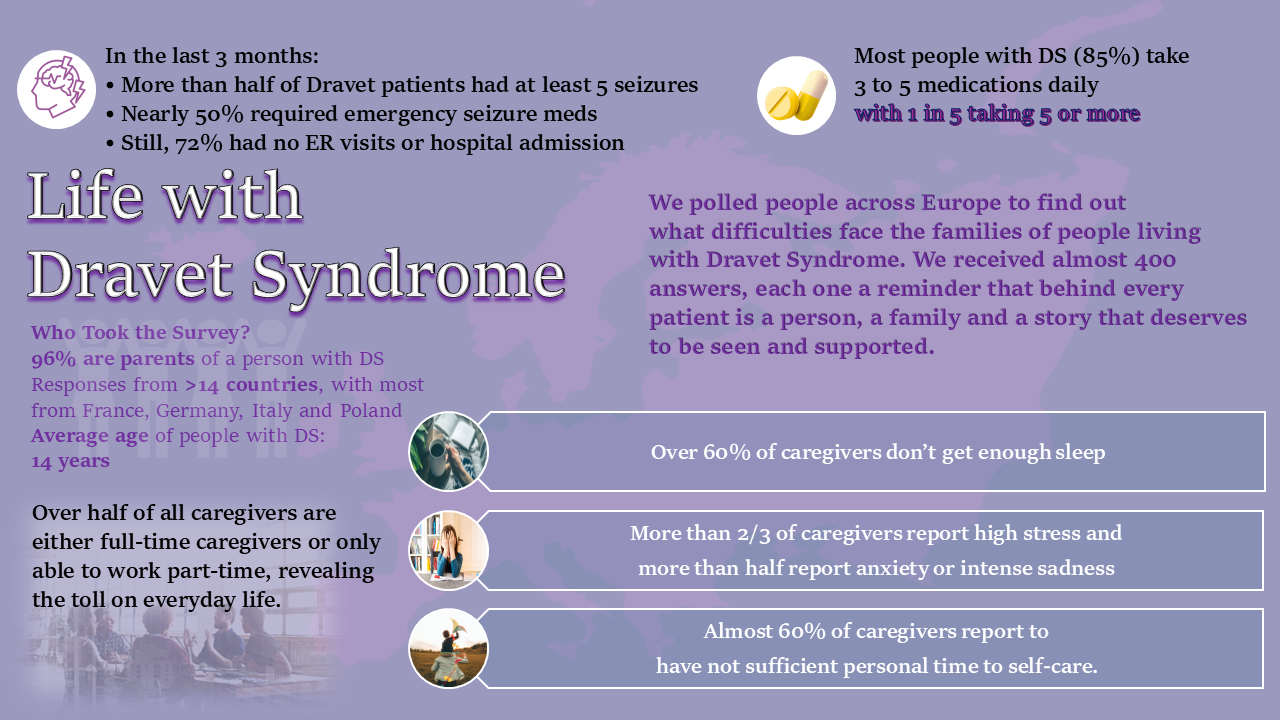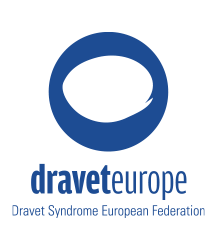
01 Jul A Snapshot of Life with Dravet Syndrome
Before the Dravet Syndrome Awareness month, the Dravet Syndrome European Federation conducted a survey to learn of the life of individuals living with this life-altering condition. Almost 400 respondents from more than 15 countries shared insights into the daily challenges, resilience, and moments of joy that shape their lives.
The aim of the QOL4DRAVET questionnaire, which has been designed to comprehensively evaluate the well-being and quality of life specifically for caregivers and their children who are affected by this severe form of epilepsy, was to identify critical areas where interventions are most needed.
Key findings from the community:
- Over 50% of respondents care for someone who experienced more than five seizures in the last three months, with almost one in four facing more than 20 episodes.
- Nearly half of those seizures required emergency intervention, yet 72% of families managed care without hospital visits – underscoring their extraordinary strength and adaptability.
- Most individuals with Dravet Syndrome take three or more medications daily, often facing side effects that complicate daily life.
- Over half of caregivers report emotional strain, including high stress and anxiety – yet nearly 60% also witness genuine moments of happiness in their loved ones.
This survey shines a light on both the difficulties and the determination of families across Europe. It’s a reminder that behind every data point is a person, a family, and a story that deserves to be seen and supported.
We invite you to explore the infographic and stand with the DS community in raising awareness, driving research, and amplifying every voice.
We are currently working on the data and a deep analysis will be shared later on.
The questionnaire development has been structured in multiple phases, with each phase aiming to assess the quality of life for individuals living with Dravet Syndrome and their support networks. This project has been distinguished by its comprehensive and inclusive methodology, engaging a wide array of stakeholders, including patients and their families. Such an approach ensures a holistic view of the challenges faced by those affected by this severe form of epilepsy.
At the core of this initiative is a commitment to collaboration. The development phase of the tools and methods has been conducted in close cooperation between the Dravet Syndrome European Federation and the scientific team directed by Prof. Jon Andoni Duñabeitia at Universidad Nebrija, with the collaboration of critical stakeholders. This will guarantee that the QOL4DRAVET effectively address the social, psychological, familial, and economic aspects relevant to Dravet patients and their families.
More details about the survey can be found here.
